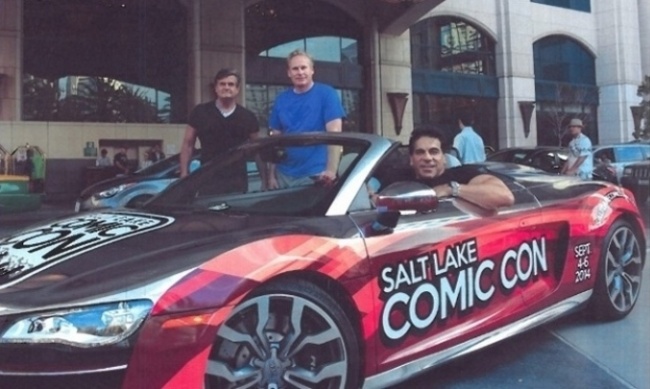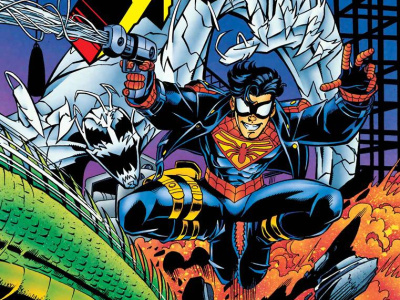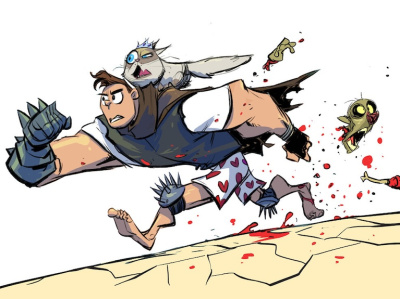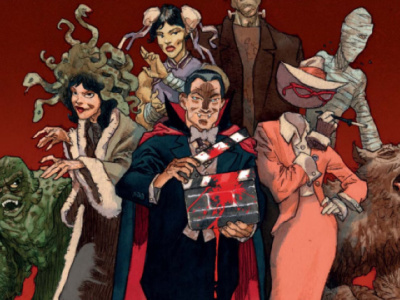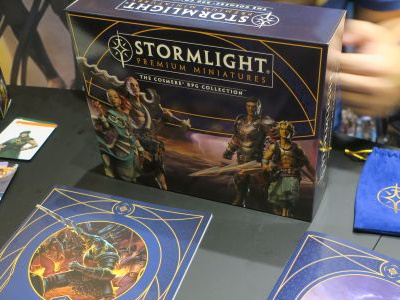San Diego Comic Convention, the non-profit organization that runs Comic-Con International (San Diego Comic-Con), definitively won the battle of post-trial motions in its trademark case against Dan Farr Productions, the organizer of Salt Lake Comic Con (see "Post-Trial Motions Filed in Comic-Con Case"). The court awarded San Diego $3,962,486.84 in attorneys fees and costs in addition to the $20,000 judgment awarded by the jury in the infringement case (see "San Diego Wins Lawsuit Over ‘Comic-Con’").
The judgment was against Dan Farr Productions, the Utah LLC that organized the Salt Lake convention, and individuals Dan Farr and Bryan Brandenburg, meaning that bankrupting the company would not eliminated the debt; the individuals are also liable.
The court also issued a permanent injunction against the Salt Lake organizers including almost all of the elements requested by San Diego.
- DFP can’t use any of SDCC’s trademarks, "confusingly similar marks (i.e. Comicon or Comiccon), or any phonetic equivalents (i.e. ComiKon or ComicKon) for any event."
- DFP can’t use any social media site that uses SDCC’s marks.
- DFP can’t call its show "formerly known as Salt Lake Comic Con."
- DFP can’t register or use domain names that incorporate any of SDCC’s trademarks, confusingly similar marks, or phonetic equivalents.
- DFP cannot use its old domain, www.saltlakecomiccon.com, as a forwarding address.
The only issue on which the court ruled against SDCC on the injunction was on the swag inventory: DFP was allowed to keep the swag as long as it doesn’t use it except as a "historical archive."
The awarding of attorney fees required that the court find that the case was "exceptional," which was extensively defined and analyzed in the ruling. The court noted numerous examples of bad behavior by Dan Farr Productions or its attorneys to inform the evaluation of the case as "exceptional." Among the abuses cited in the ruling were:
- DFP’s motions did not adhere to the court’s requirements for length.
- DFP’s attorneys missed a deadline to file a challenge to one of SDCC’s expert witnesses, then asked to file it late, then filed a second motion to challenge the ruling that they couldn’t.
- DFP violated a Protective Order on confidential information in the case by including it in a motion and putting it out on social media.
- DFP’s attorneys repeatedly re-argued issues that had already been decided.
- DFP’s attorneys made "objectively unreasonable" legal arguments.
- Overall, DFP responded in an "unreasonable" way to the litigation, including continuing to use the marks after receiving a "cease and desist" notice and arguing the case to the public.
- DFP’s attorneys referenced SDCC’s financial success to stimulate jury bias, which the ruling called "clear misconduct."
- DFP’s attorneys continuously referred to "Comic-Con" in the presence of the jury in ways that the court had prohibited.
- DFP’s attorneys mis-stated the law in their arguments (one of the issues discussed in this section made clear that in the court’s eyes, whether or not a hyphen is used in "comic-con" is "inconsequential").
SDCC had asked for nearly $5 million in attorney fees and over $240,000 in expert fees, so the award of a total of $3,962,486.84 was a modest victory of sorts for Dan Farr Productions; the reductions were made by the judge for a variety of technical reasons (for example, billing hours in quarter hours instead of tenths!).
Regardless, $4 million is not a small amount of money and the personal liability makes the judgment especially powerful. Immediately after the original verdict, DFP had vowed to appeal (see "Salt Lake Comic Con Organizers Will Appeal"), but it will be interesting to see whether they continue to pursue the case, appeal the award of fees, or decide to cut their losses and move on.
Dan Farr Productions and the other defendants have 30 days from the date of the order, August 23, to comply with the injunction.



